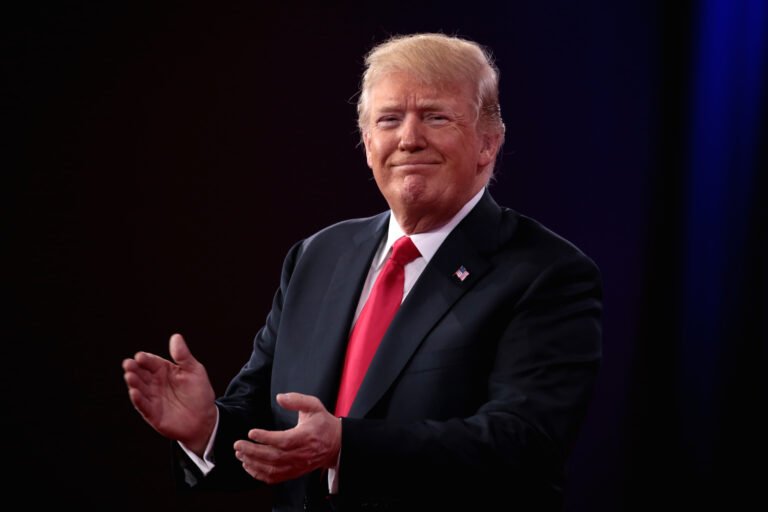WASHINGTON D.C. – As America stands at the crossroads of yet another crucial election, the closing message from Donald Trump isn’t merely a list of promises—it’s a stark reminder of a choice between two distinct visions of the future. With only days left until the polls open, Trump’s message should be clear: he has been there, done that, and delivered, while Kamala Harris and her administration have plunged the nation into chaos.
Trump doesn’t need to promise the world because he already gave it to the American people during his first term. His message shouldn’t be cluttered with vague pledges of what could be done—rather he should be reminding the people of what he already accomplished. The booming economy, energy independence, secure borders, and a foreign policy devoid of endless wars: these are not empty campaign promises. They are real results. The Trump years were marked by prosperity and global respect, while the Harris administration has eroded America’s strength on every front. The people know this, and now Trump should in these closing days remind them of it.
In the final days of this campaign, Trump’s strategy shouldn’t be to outline new initiatives. His closing argument should be a call for a referendum on experience and record. “Look at what I did when I was in office.” “Look at what they’ve done since.” Kamala Harris, is the leading figure of the current administration, should be painted as the embodiment of the failures of the last four years. Inflation, skyrocketing crime rates, a weakened military, and a country more divided than ever—this is the legacy Harris is saddled with.
While Harris tries to paint herself as the candidate of hope, Trump’s message should be simple: hope isn’t enough. Americans need action. They need results. And while Harris’s camp spins a narrative of fear, warning about the dangers of a second Trump term, Trump calmly reminds the public, “I’ve been there before. If I didn’t destroy America the first time, why would I now?”
Addressing Fear Tactics
One of the most potent elements of Trump’s closing message should be a direct attack on the fear tactics being peddled by the Harris campaign. They warn of a return to authoritarianism, of attacks on democracy, of chaos in the streets if Trump is elected again. But Trump counters these claims with a sense of calm confidence, reminding voters that these are the same warnings that were issued in 2016. Back then, the establishment said Trump would crash the economy, start endless wars, and dismantle the Constitution.
And what happened? None of that. In fact, the opposite happened. The economy soared, peace agreements were brokered, and America was respected on the world stage.” He’s not here to stoke fear, but to calm the nerves of voters, to assure them that the nightmare scenarios painted by his opponents are nothing but political theater. If he didn’t burn America down during his first term, why would anyone believe he would do so now?
Trump’s closing message must offer reassurance. He’s done this before. He delivered results. And he can do it again. His approach cuts through the hysteria of the Harris campaign, presenting a steady hand in contrast to what he frames as Harris’s erratic leadership.
At the heart of Trump’s final argument should be a call for the rebirth of the American spirit. “If you want more of what we’ve seen under Biden and Harris, vote for them. If you want change, real change, if you want America to rise again, then vote for me.” It’s a stark choice he’s presenting to voters. He is positioning himself as the candidate of American resurgence—a resurgence in the economy, in national security, in pride.
Under Harris, Trump should add, that America has lost its way. The economy is in freefall. Crime is rampant. Global respect has diminished. The administration has been mired in endless debates over identity politics while the average American struggles to put food on the table. The contrast couldn’t be clearer: Trump offers strength, Harris offers weakness. Trump offers growth, Harris offers stagnation. Trump offers peace through strength, Harris offers division and insecurity.
Another key element of Trump’s final push should be his disdain for the empty promises of “politically correct” politicians. “I’m not like them,” he should tell the American people. “I don’t make promises just to get votes and then ignore them once in office.” Harris represents the worst of Washington—politicians who say whatever it takes to win, but once in office, bend to the will of special interests and political elites.
Trump should remind the people how he is different. He speaks directly to the people, often controversially, but always truthfully. Whether you like him or hate him, you know where he stands. In contrast, Trump argues, Harris and the Democratic establishment tell voters what they want to hear, but their actions reveal a starkly different reality once they hold power.
As Trump closes his campaign, his message should boil down to this: America has a choice. Do voters want more of the same policies that have driven the nation into disarray? Do they want four more years of economic turmoil, spiraling crime, and diminished global standing under Harris? Or do they want a return to prosperity, to peace, to security?

